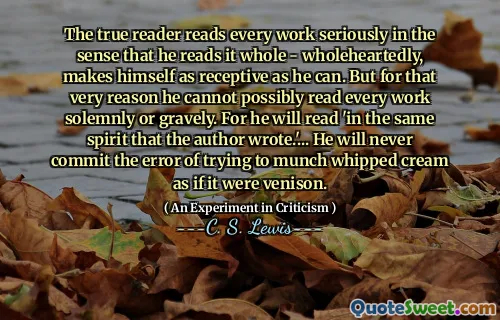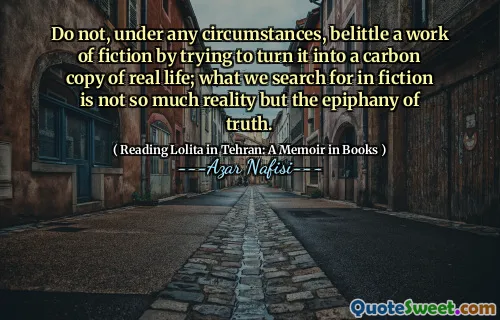
The true reader reads every work seriously in the sense that he reads it whole - wholeheartedly, makes himself as receptive as he can. But for that very reason he cannot possibly read every work solemnly or gravely. For he will read 'in the same spirit that the author wrote.'... He will never commit the error of trying to munch whipped cream as if it were venison.
This quote from C. S. Lewis underscores a profound aspect of genuine reading: approaching texts with sincere engagement and openness. A true reader doesn't merely skim or superficially interpret a work; instead, they immerse themselves fully, attempting to understand and emotionally connect with the material, striving to see the world or the ideas through the author's perspective. Such wholeheartedness ensures that reading remains a dynamic and meaningful interaction rather than a passive or mechanical activity. Lewis emphasizes that this depth of engagement does not mean that all reading needs to be solemn or overly serious; instead, it encourages approaching each work in the spirit it was created. The analogy of not trying to eat whipped cream as if it were venison vividly illustrates the importance of understanding the nature and intention of a work—each genre or subject has its own integrity and style, and it is foolish to treat them indiscriminately. A true reader recognizes the differences and respects the author's intent, adapting their approach accordingly. This insightful perspective reminds us that reading is an active, interpretive art. It pushes against the reductive tendency to quantify such activities or to impose our own expectations rigidly, suggesting instead that the enjoyment and understanding come from alignment in spirit with the work. Embracing this approach enriches the reading experience, fostering empathy, insight, and a deeper appreciation for literature and human expression.






